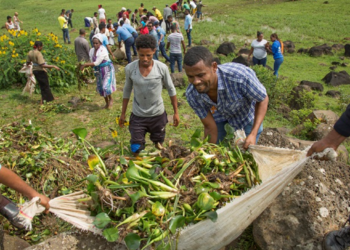Overfishing in West Africa fuels migration – With about 5.5 million tonnes of fish caught in 2019, fishing in West Africa is considered vital for food and livelihood. A 2015 study revealed that nearly 7 million people depend directly on fishing for food or employment.
However, several factors are depleting fish stocks, causing economic hardship and fuelling irregular population migration to Europe. Experts believe that West African countries should work together to secure fairer fishing agreements, invest in monitoring to deter illegal fishing and implement policies to protect the marine ecosystem.
Between 2017 and 2023, more than 900,000 migrants arrived irregularly in Europe from West Africa. The journey is dangerous, with many people not reaching Europe and many others dying, mainly from drowning, dehydration or hypothermia.
Illegal fishing has caused the loss of more than 300,000 jobs in the artisanal fishing sector in West Africa, the Covid-19 pandemic has exacerbated conditions, leading to an increase in extreme poverty in the region.
The fishing sector, which contributes significantly to GDP in countries like Senegal, is coming under pressure due to fishing agreements with the European Union and the presence of foreign fishing vessels.
West African nations have started to develop fisheries policies to ensure sustainable development and protect local fishermen. However, more investment and effective policies are needed to address the current challenges. The international community is called upon to work together to ensure fairer and more sustainable fisheries agreements.
Overfishing in West Africa fuels migration









